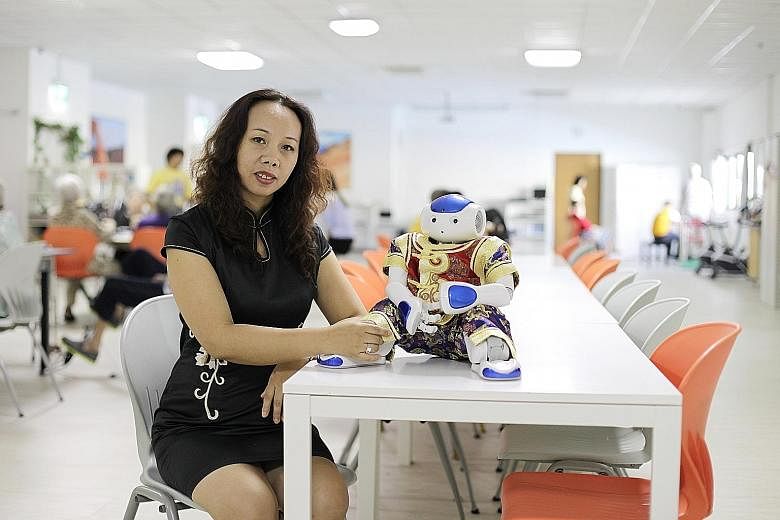Q What made you start the business?
A Three years ago, I was running an IT company with a partner in Singapore. I took the company to China, where its growth accelerated.
While I was there, I saw that the ageing population was becoming a big and pressing societal issue. When I returned to Singapore, I researched the market and realised that there were only a few senior daycare centres in Singapore, and all of them have waiting lists.
I realised that the amount of support given to those who need eldercare services was very low.
I thought that with my background in IT solutions and business, I could improve the quality of service in this sector.
For instance, I have been able to use my IT knowledge to improve the management of our services and processing facilities.
Q What services does Goldencare Group provide?
A In Singapore, we provide daycare services for the elderly at one centre in Kallang Bahru.
The elderly whom we take care of are between 77 and 97 years old. Most of them have slight dementia and most of them are mobile.
We provide activities mainly related to preventing and slowing down dementia. For instance, besides cardio exercises to train the muscles in the morning, we have games which focus on keeping the seniors' minds alert.
We request that clients come to the centre for a minimum of three days a week and we charge about $800 a month.
Q What kind of challenges have you faced?
A We do not get any help from the Government. This means that we have to source for space ourselves and get manpower from the open market. For eldercare providers that get help from the Government, they have subsidies and can hire manpower at a lower cost.
While the market for eldercare services is growing, most service providers still depend on subsidies from the Government.
Our clients usually need to have more earning power as they cannot use Medisave to pay us.
But a lot of people like to use our services as we solve problems for caregivers.
There is a (strong) market demand now, and the senior daycare centres which receive public subsidies typically fill up within four months.
If people are allowed to use their Medisave funds, or some liberalisation of the market takes place, like what has happened in China, it would help caregivers and improve the quality of service.
Q How has the business performed and what is the growth strategy?
A When we started, in our first year, we had about 10 customers and two staff. We delivered brochures to people and held open house to raise awareness. Our first few visitors are still our clients today.
Today, we have more than 30 customers and five to six staff at the Kallang Bahru centre.
We poured about $1 million into the centre in the past three years, and we are at the point of breaking even in Singapore. We are looking into renting a smaller centre around our location, as well as opening centres in East Coast and Bukit Timah.
We opened our first centre in China after setting up in Singapore, but growth in China has been faster.
We are the first private senior-care centre in China. We had been repeatedly applying for the licences and was the first to be registered as an eldercare company when the government liberalised the sector in May last year.
Although we began operating our Shanghai centre only after Chinese New Year this year, that centre, which has capacity for 50 people, is almost full. We will be opening a second facility there this September.
The facility, which includes overnight stays for the elderly, is supported by the Chinese government, which gave us a 2,000 sq ft centre to run.
We have the support of venture capital firms, which provide some funding. We hope to accelerate our expansion in the next five years.
In the last three years, we focused on setting up standard operating procedures, facilities and branding.
Through franchising, we aim to grow to 15 centres in Singapore within the next five years, and to have 200 centres in China in the same period.


